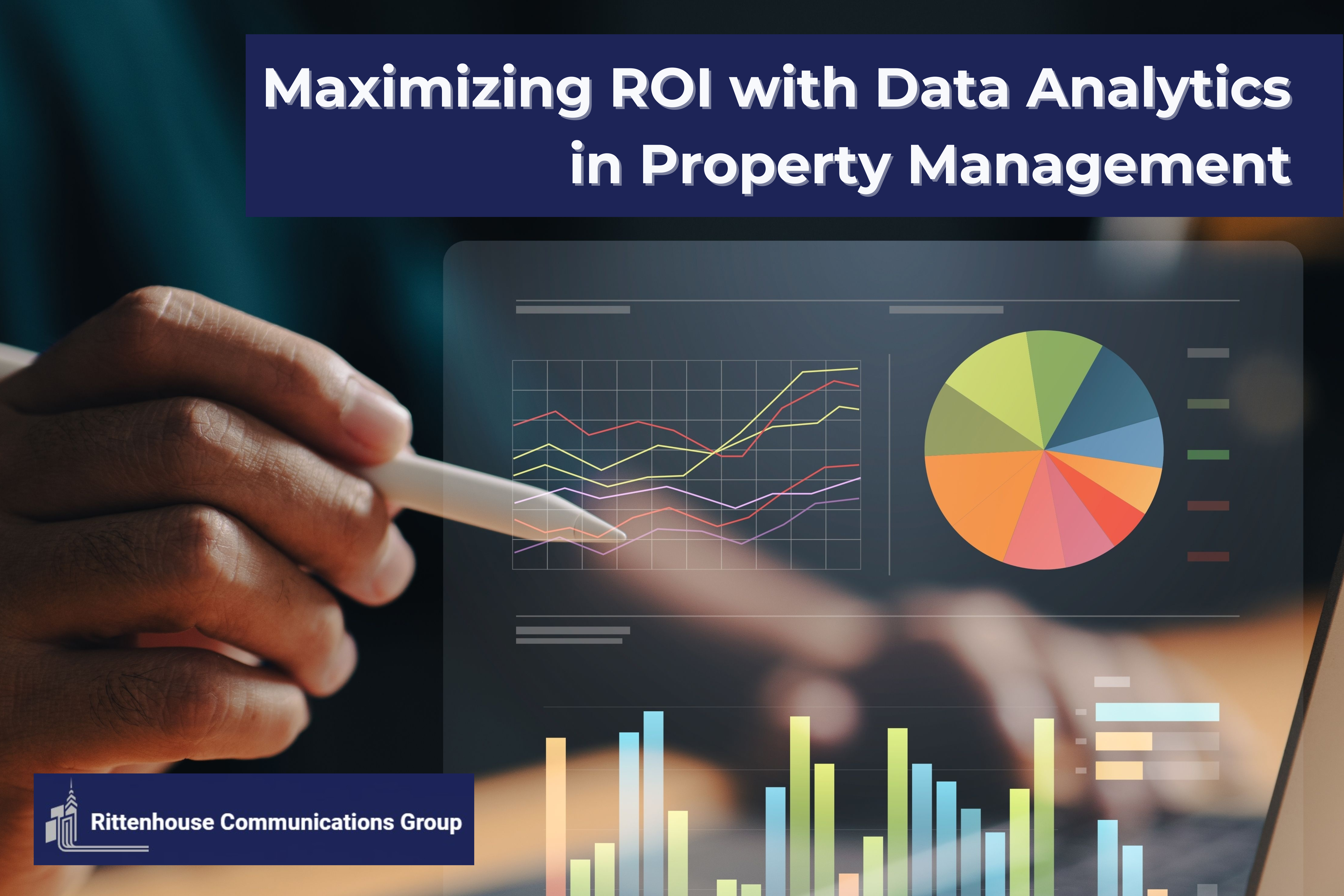What is Data Analytics in Property Management?
Data analytics in property management is the process of collecting, analyzing, and leveraging vast amounts of data to make informed decisions that enhance property performance. For property managers, this involves using data to monitor market trends, analyze property values, and assess occupancy rates. By integrating property management software and real estate data analytics, property management companies can unlock actionable insights that lead to better decision-making and improved ROI.
In an industry as dynamic as real estate, data analytics provides a competitive edge by allowing property managers to stay ahead of market fluctuations and optimize their property management strategies. Whether it’s tracking historical data or predicting future trends, the use of data analysis tools in property management is essential for maintaining a successful real estate business.
Benefits of Data Analytics in Property Management
Data analytics offers numerous benefits for property managers and owners alike. One of the most significant advantages is the ability to enhance tenant satisfaction by analyzing data related to tenant behavior and preferences. This data-driven approach allows property managers to make informed decisions that improve tenant retention and reduce vacancy rates.
Moreover, data analytics in property management helps in optimizing maintenance costs by predicting when repairs or upgrades are necessary. By analyzing historical data on maintenance, property managers can plan and budget more effectively, leading to cost savings and increased property values.
Another key benefit is the ability to assess property performance in real-time. Data analytics tools enable property managers to monitor occupancy rates, rent prices, and other critical metrics, allowing for adjustments that maximize revenue. For property owners and real estate professionals, this means higher returns on investment and a more profitable real estate portfolio.
Data-Driven Decision-Making in Property Management
In today’s real estate industry, data-driven decision-making is no longer a luxury but a necessity. Property managers who leverage data analytics are better equipped to navigate the complexities of the market and make decisions that enhance property management outcomes.
For instance, analyzing market trends and real estate data can help property managers identify opportunities for growth and expansion. By understanding future market trends, property management companies can position themselves strategically to capitalize on emerging opportunities.
Additionally, data-driven decision-making enables property managers to optimize rental pricing strategies. By analyzing data on local market conditions, tenant demand, and historical rental rates, property managers can set competitive prices that attract tenants while maximizing profitability.
Essential Data Points for Property Managers
To effectively leverage data analytics, property managers must focus on key data points that drive performance. These include:
- Occupancy Rates: Monitoring occupancy rates helps property managers assess the demand for their properties and adjust marketing strategies accordingly.
- Tenant Satisfaction: Analyzing tenant feedback and behavior provides valuable insights into how to enhance tenant satisfaction and retention.
- Maintenance Costs: Tracking maintenance expenses over time allows property managers to identify cost-saving opportunities and budget more effectively.
- Property Values: Understanding property values in the context of market trends enables property managers to make informed decisions about buying, selling, or upgrading properties.
- Market Trends: Staying informed about market trends is crucial for identifying opportunities and risks in the real estate market.
By focusing on these data points, property managers can make more informed decisions that drive success in the property management industry.
Advanced Analytical Tools and Techniques
The use of advanced analytical tools and techniques is essential for property managers looking to maximize the benefits of data analytics. Modern property management software comes equipped with data analysis tools that provide real-time insights into property performance, market conditions, and tenant behavior.
One of the most powerful techniques in data-driven property management is predictive analytics. By analyzing historical data, property managers can predict future trends and make proactive decisions that improve property performance. For example, predictive analytics can be used to forecast occupancy rates, allowing property managers to adjust their marketing strategies accordingly.
Another valuable tool is geospatial analysis, which enables property managers to analyze data related to the physical location of properties. This can include analyzing demographic data, proximity to amenities, and local market conditions to determine the best locations for investment.
Implementing Data Analytics in Property Management
Implementing data analytics in property management requires a strategic approach. Property management companies should start by investing in property management software that offers robust data analysis capabilities. This software should integrate seamlessly with existing systems and provide user-friendly dashboards that make it easy to access and interpret data.
Training is also essential for property managers to effectively use data analytics tools. Property management companies should invest in training programs that help their teams develop the skills needed to analyze data, interpret results, and make data-driven decisions.
Additionally, property management companies should establish clear goals and KPIs (Key Performance Indicators) for their data analytics initiatives. These goals should align with the company’s overall business strategy and focus on improving key metrics such as occupancy rates, tenant satisfaction, and ROI.
Best Practices for Property Managers
To maximize the benefits of data analytics in property management, property managers should follow these best practices:
- Focus on Actionable Insights: Data analytics should provide actionable insights that lead to tangible improvements in property management outcomes. Property managers should prioritize data points that directly impact performance.
- Stay Current with Market Trends: The real estate market is constantly evolving, and property managers must stay informed about the latest trends. Regularly analyze market data to identify emerging opportunities and risks.
- Use Data to Enhance Tenant Satisfaction: Tenant satisfaction is a key driver of success in property management. Use data analytics to understand tenant needs and preferences, and implement strategies that improve the tenant experience.
- Leverage Predictive Analytics: Predictive analytics can provide a significant competitive advantage by helping property managers anticipate future trends and make proactive decisions. Invest in tools and training that enable predictive analysis.
- Integrate Data Across Systems: Ensure that data from various sources (e.g., property management software, CRM systems, market research) is integrated and easily accessible. This holistic approach to data management enables more comprehensive analysis and better decision-making.
- Continuously Monitor and Adjust: Data analytics is an ongoing process. Continuously monitor key metrics, assess the effectiveness of your strategies, and adjust as needed to achieve the best possible outcomes.
Enhance Your Property Management Strategy with Data Analytics
By following these best practices and leveraging the power of data analytics, property managers can make more informed decisions, enhance tenant satisfaction, and ultimately maximize ROI in the competitive real estate market. The ability to analyze data effectively and translate it into actionable insights is no longer optional—it’s essential for thriving in today’s dynamic real estate industry.
If you’re looking to take your property management strategy to the next level, consider partnering with experts who understand the intricacies of data-driven decision-making. Rittenhouse Communications Group, headed by Sean Edwards, offers specialized services to help the clients better manage their properties through innovative technology solutions and expert guidance.
By collaborating with industry leaders like Rittenhouse Communications Group and Sean Edwards, you can harness the full potential of data analytics and drive significant improvements in your property management operations. Don’t miss the opportunity to enhance your business with the latest technologies and expert insights. Contact Mr. Edwards or his team at RCG today to learn more.




